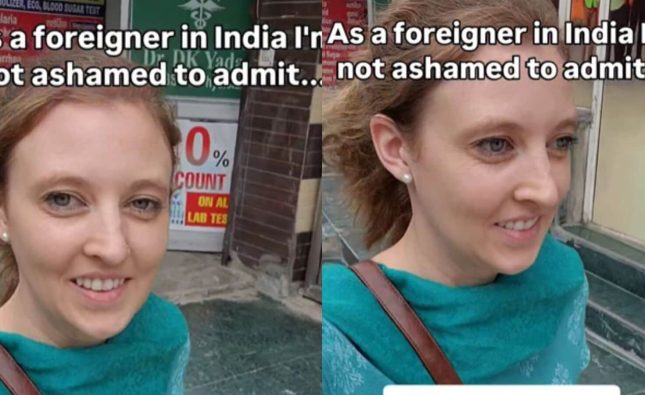
The Draft Advocates (Amendment) Bill 2025, which was circulated last week for public feedback, has left the legal industry a house divided. While most companies are supporting the Bill, law firms — particularly the family-owned ones — have expressed serious concerns.
The draft has been flagged by the Bar Council of India (BCI) for its “draconian provisions.” In a letter to the ministry, BCI has said the very concept of autonomy and independence of the Bar is attempted to be demolished. Apart from entry of foreign legal firms and lawyers, BCI also has objections to provisions that would give the government more control over the Council, including the introduction of up to three government nominees on the BCI.
However, senior advocate DP Singh welcomed the reforms proposed in the Bill. The entry of foreign law firms with the suggested regulations and limitations should be welcome as India which is aspiring for a leadership role in the world should be open to such changes, he said.
Expressing similar sentiments Pankaj Agarwal, advocate, Supreme Court of India and arbitrator & mediator, said “interesting changes have been made in certain definitions, including that of legal practitioners”, which proposes to include corporate lawyers, in-house counsels, and those engaged in legal work in private and public organisations, statutory bodies, and foreign law firms”.
Interestingly, professionally run law firms are also in favour of the Draft Amendment. Harry Chawla, managing partner of Luthra & Luthra, said it is a progressive step towards transforming the landscape of practice of law in India. “That the Advocate Act, 1961 requires changes to align the legal profession and legal education with global best practices is beyond debate. Several measures are commendable.”
Allaying apprehensions over the proposal to permit entry of foreign law firms, Chawla said there has been considerable advancement in the development of expertise and experience of Indian lawyers in the last few decades. Entry of foreign law firms would be a great advantage to cater to clients and provide seamless service to clients across multiple jurisdictions.
“As far as in-house counsels are concerned this is keeping with their longstanding demand to be permitted to argue in courts. This is a welcome development and will lead to diversity in the Bar and bring down legal costs. In the long run, the movement from firms to corporates and vice versa will become smoother and more common place,” Chawla added.
Concurring with this, Mohit Saraf, managing partner at Saraf and Partners told FE, “ the proposed amendments provide a clearer and potentially more transparent pathway for foreign law firms to establish offices in India, subject to compliance with the new regulatory framework and adherence to reciprocity conditions”.
Foreign law firms, he said, would have to navigate the dual oversight of the central government and the BCI, ensuring adherence to Indian regulations, professional standards, and any additional requirements set forth in the forthcoming rules. However, the real test would be the quality of these rules as foreign law firms and foreign lawyers would be nervous in subjecting themselves to ‘excessive’ regulatory regime”.
On the proposal to empower the central government to establish rules for the entry of foreign law firms and lawyers, a responsibility previously held by the BCI, Saraf was hopeful that the shift “would probably lead to a more uniform and streamlined process for foreign entities seeking to establish a presence in India. The second significant addition is foreign law firms, whose entry into the Indian market is something that has been resisted by the bar for years. The Draft Amendment has staved off this challenge in one fell swoop by empowering the central government to make rules in this regard.”
Hemant Batra, head and senior legal consultant, new ventures and growth with tier 1 law firm Shardul Amarchand Mangaldas also felt “the proposed amendments aim to enhance the legal profession and legal education by aligning them with global best practices.
Jayesh H, co-founder of mid-sized firm Juris Cor,p said, “The proposed amendments can be a game changer for in-house counsels and their career movements. Even now, in-house counsels do not get treated as lawyers and this will change post these amendments.” Elaborating further he added, “this would mean there can be greater two-way movement between law firms and corporates especially from in-house to private practice which currently is largely restricted to post-retirement arrangements.
What is to be seen is whether in-house counsels will get to be on par with private practice in all respects. That would include the right to appear on behalf of their employer before various forums including high courts and the Supreme Court of India. Hopefully, the old concept of lawyers being first an officer of the court and then an advocate for their client will not derail this.”
However, he expressed apprehensions over the stranglehold the government would acquire if the Bill was to be passed. Regarding the proposal about registration of law firms, Jayesh said, “It is not clear whether this will result in their being regulated also and whether the State Bar Council will provide any kind of services to them. Or is it merely a way to legitimize collection of registration fees which in the past have been sought to be collected every time a lawyer joins or leaves a firm. One hopes that this is not the precursor to the Bar Council deciding which Indian law firm can tie up with a foreign law firm. Hopefully, the Government’s stated intention of Ease of Doing Business will prevent such a license raj being created,” he quipped.
Chawla of Luthra & Luthra also struck a cautionary note. Under the Draft Amendment, the Bar Council of India is empowered to make rules to recognise and regulate law firms regardless of their size or presence. “While it may appear beneficial, the same may delay, if not impede the growth of law firms, especially those that break away from larger more influential firms. In addition to the above, this would appear superfluous considering that individual lawyers are regulated by the Bar Council of India,“ he said.











